Infection Control Course
Online Infection Control course suitable for anyone working where bacteria or virus infections could occur. Based on lessons from COVID 19 the training provides the knowledge needed to reduce the chance of infection.
Get certified in 45 mins
Valid for 3 years
QR-Verifiable certificate
Unlimited free assessment retakes
Includes online learner dashboard
Bulk buy discounts
Accredited By:CPD Group


- For Me
- For My Team
£10.00 + VAT
£10.00 + VAT

Any Questions?
Have any questions about our training or services?
Email us at info@echo-3.co.uk today!





